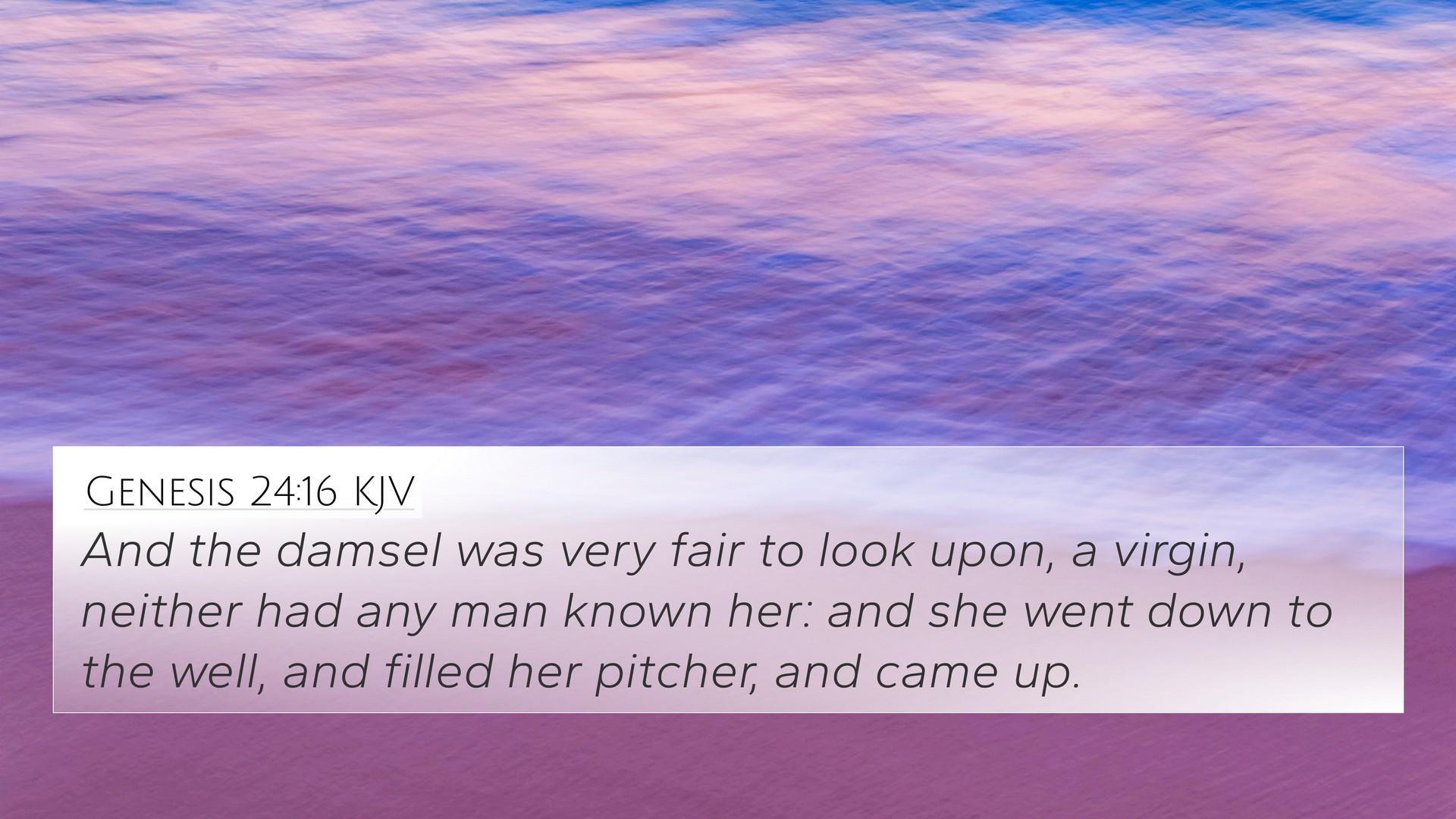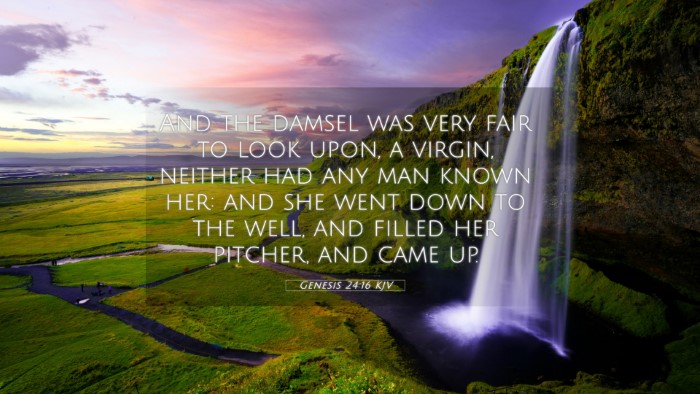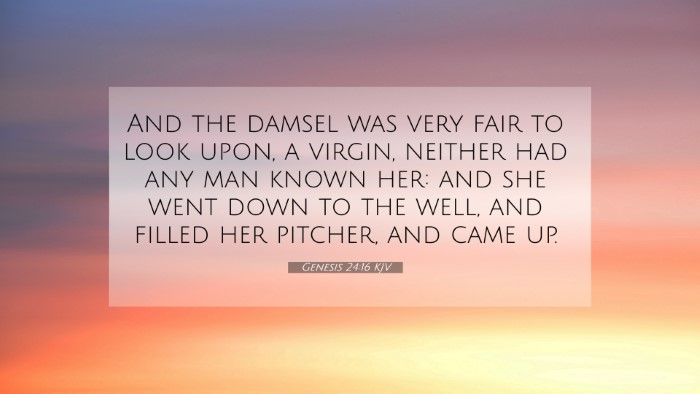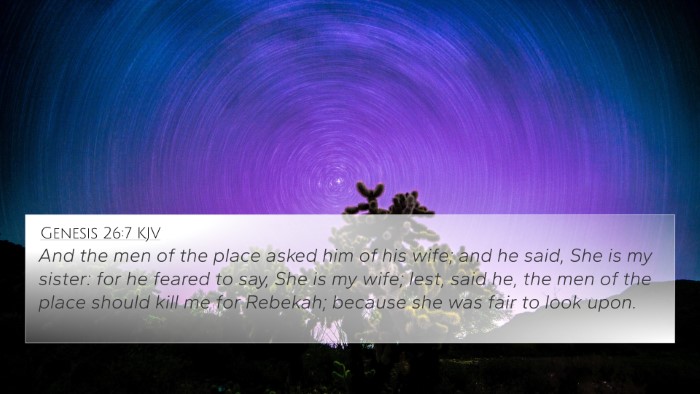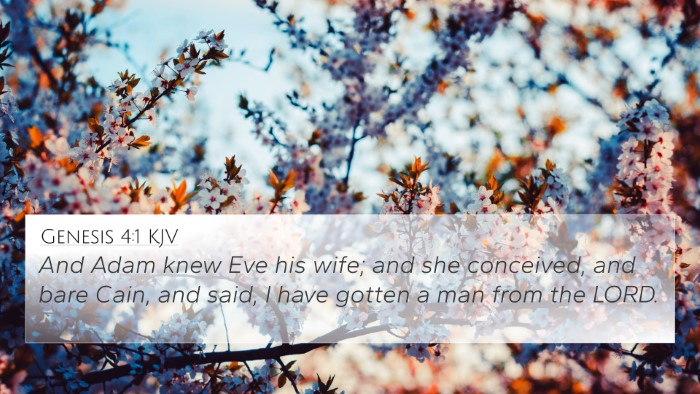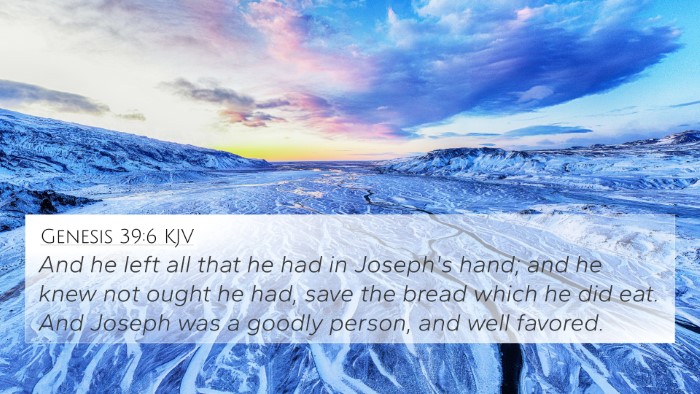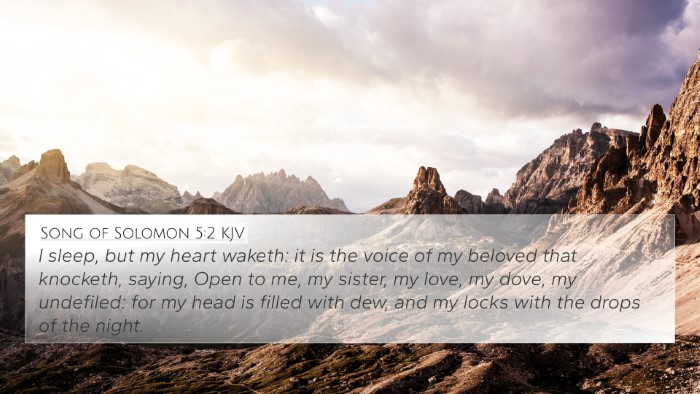Understanding Genesis 24:16
Genesis 24:16 states: "And the damsel was very fair to look upon, a virgin, neither had any man known her: and she went down to the well, and filled her pitcher, and came up." This verse highlights the selection of Rebekah as a suitable bride for Isaac, providing a pivotal moment in the lineage of the Israelites.
Summary and Insights from Commentaries
In the interpretations of Matthew Henry, Albert Barnes, and Adam Clarke, various themes arise from this verse:
- The Beauty and Virtue of Rebekah: The mention of her beauty and virginity signifies her purity and readiness to fulfill her role in God's plan. Commentators emphasize that outward beauty should be accompanied by inner virtue.
- Divine Providence: The details surrounding Rebekah's character and circumstances illustrate the hand of God in orchestrating events in the lives of His people. This passage sets the stage for subsequent divine involvement throughout the Genesis narrative.
- Preparation for Marriage: Rebekah's act of drawing water represents readiness and service, a reflection of the qualities desired in a wife according to biblical standards. Matthew Henry discusses the importance of diligence and preparation in life’s calling.
- Symbolism of the Well: Wells in biblical narratives often symbolize life and sustenance, pointing to the necessity of spiritual nourishment. This connection suggests that finding a suitable partner requires seeking divine guidance.
Connections to Other Bible Verses
Genesis 24:16 creates a web of connections with other scriptures. The following references are relevant:
- Proverbs 31:30: "Charm is deceptive, and beauty is fleeting; but a woman who fears the Lord is to be praised." This parallels Rebekah's character of virtue over mere beauty.
- 1 Samuel 16:7: "But the Lord said to Samuel, 'Do not look at his appearance or at his physical stature, because I have refused him. For the Lord does not see as man sees; for man looks at the outward appearance, but the Lord looks at the heart.'" A reminder that God's focus is on the inner person.
- Matthew 25:1-4: The parable of the ten virgins highlights readiness and preparation for an important event, similar to Rebekah’s preparedness at the well.
- John 4:14: "But whoever drinks the water I give them will never thirst." This verse connects the significance of water with spiritual life, echoing the symbols seen in Rebekah's actions.
- Genesis 24:2-4: The surrounding verses where Abraham instructs his servant to find a bride for Isaac, setting the context for the importance of this selection.
- Genesis 26:34-35: The mention of the importance of marrying within the faith further highlights the significance of Rebekah as a choice that aligns with God's covenant.
- Isaiah 62:5: "For as a young man marries a young woman, so will your builder marry you; as a bridegroom rejoices over his bride, so will your God rejoice over you." This reflects the joy connected to a favorable marriage, as seen in Isaac's relationship with Rebekah.
Thematic Analysis
In a broader thematic analysis, Genesis 24:16 emphasizes:
- The Role of Women in Scripture: Rebekah is not merely passive but engages actively in her future, showcasing women’s roles throughout biblical history.
- God's Sovereign Will: The selection of Rebekah is not coincidental but part of divine providence, indicative of how God’s will is woven into human decisions.
- Marriage as a Covenant: This verse anchors the significance of marriage in Biblical theology, seen as a covenant before God, linking to Christ and the church.
Tools for Cross-Referencing
For those seeking a deeper understanding, utilizing a Bible concordance can facilitate the process of finding connections between Genesis 24:16 and other scriptures. A cross-reference Bible study guide is also invaluable for exploring thematic links.
Utilizing these tools helps in identifying connections between the Old and New Testament while providing a structured approach to comparative Bible verse analysis.
Conclusion
Genesis 24:16 is rich with meaning and connections. It invites reflection on the role of divine providence in the personal lives of individuals, the significance of virtue in relationships, and the importance of preparation and readiness. This verse is not stand-alone, but deeply woven into the narrative of scripture, exemplifying the beauty of inter-Biblical dialogue and systematic scriptural cross-referencing.
